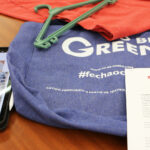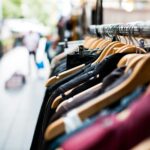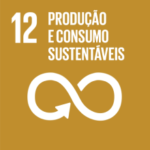
At El Corte Inglés, used clothes get a new life
El Corte Inglés and To Be Green, a spin-off from the University of Minho, have joined forces inan unprecedented partnership, to produce 300 new articles
Since April 8th, both the buying and selling of second-hand clothes has been exempt from taxes on eBay in the UK.
Online retailer eBay has stopped charging any fees for buying and selling second-hand clothes in the UK in an effort to reduce waste, keep more clothes out of landfill and boost the circular economy.
The new sales policy came into force on April 8 and applies to both used clothing and new items with a label, advertised before or after April 8, but excludes sneakers, bags, watches and jewelry.
“The free sale of fashion has come at just the right time for a nation that has billions of pounds of unwanted clothing,” said Kirsty Keoghan, eBay’s Managing Director of Global Fashion, in a statement.
According to a recent survey, 70% of the British population wears 50% or less of their closet on a daily basis. Despite the fact that 92% of citizens claim to have more than one item of clothing they haven’t worn in the last 12 months, only 25% of the population sell their unwanted garments, which means that the average consumer is keeping more than 400 pounds of clothes they don’t wear. The measure aims to unlock an estimated 16.3 billion pounds worth of unused clothes from the back of UK closets.
Previously, eBay private sellers were subject to a base rate of 13.22% plus 30p on all items. They are now exempt from paying transaction fees (final value fee and regulatory operating fee) when items are sold.
With the new change, the platform hopes to encourage more people to buy and sell second-hand clothes, providing a smarter and more varied way of shopping, both for their pockets and for the planet.
By selling used fashion, eBay estimates that it will have prevented more than 1.6 million kg of waste from being sent to landfills by 2023 – equivalent to the weight of more than 4 million shirts.
According to analysts, the elimination of fees was also motivated by the desire to compete with popular second-hand clothing apps such as Vinted and Depop.
“It’s an exciting time for fashion, with the second-hand goods movement continuing to gain momentum as consumers increasingly look to save money and make better decisions for the planet (…). By giving consumers even more power and choice, we are ensuring that eBay will continue to be the main destination for selling and buying clothes. Our figures also show that customers who sell on eBay buy twice as much as those who only use eBay to shop.” explained Sholto Mee, Commercial Director of eBay UK.
Every minute, five dresses, two pairs of jeans and eight second-hand tops are sold on eBay in the UK.


El Corte Inglés and To Be Green, a spin-off from the University of Minho, have joined forces inan unprecedented partnership, to produce 300 new articles

In California, clothing and fabric producers will have to take responsibility for the entire life cycle of their items, thanks to new legislation. New legislation

Although mechanical recycling is the most widely used method, it cannot deal with multi-fiber textiles. The new approach promises to effectively recycle this waste, and

This article promotes an action that encourages the reduction of waste generation through prevention, reduction, recycling, and reuse.
➡️ To discover more businesses that are aligned with Sustainable Development Goal 12 “Sustainable Production and Consumption” click here.
➡️ For news, tips and interviews about this topic, click here.
➡️ Want to know more about the 17 United Nations Sustainable Development Goals? Click here
Esta publicação também está disponível em:
![]() Português (Portuguese (Portugal))
Português (Portuguese (Portugal))